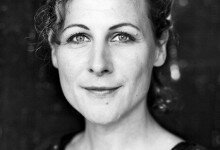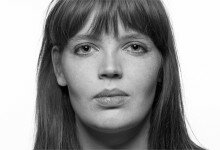Vivian Eden reads Alex Ben-Ari's 'I ask forgiveness' on Yom Kippur

Non-religious Jews are flummoxed by Yom Kippur. Some go to synagogue only on Yom Kippur, and fast. Abroad, some observe little else but take the day off.
Famously, in 1965, Jewish pitcher Sandy Koufax of the Los Angeles Dodgers sat out the opener of the 1965 World Series against the Minnesota Twins, because it fell on Yom Kippur. It’s not clear what he did instead: The rabbi of a local temple in Saint Paul claimed he attended services there; Koufax’s biographer wrote that the pitcher stayed in his hotel room.
In Israel, with few exceptions – security personnel, emergency room staffs – nobody goes to work, not even media employees, nor do they typically answer the phone. Thus, in 1973, when the Yom Kippur War broke out, police cars with megaphones had to go around to call up soldiers.
After that, Israel invented ‘white’ radio and television frequencies for Yom Kippur and for Sabbath observers, which broadcast only in emergencies (tautologically, if emergencies are expected).
In the absence of traffic, secular Israelis take to the pleasantly empty, quiet and unpolluted streets on foot, on bikes and on skates; it is possible to spin this into concern for the environment. In synagogues, in the collective confession, Ashamnu, worshippers beat their breast and ask God to forgive a catalogue of generic sins, arranged as a Hebrew acrostic from ‘We are culpable, we have betrayed’ to ‘we have erred and we have caused others to err’. At home, in some families (ours, for example) individuals ask loved ones directly for forgiveness.
Perhaps Ben-Ari did not write the poem intentionally for this, but it is appropriate for the day. The personal sins are specific: His work might not be good enough; his opinions and desires have negatively affected people’s lives; and his material and aesthetic preferences, as well as optimism that might be unjustified, have affected the physical world.
The second stanza enumerates terrible sins against those closest to him: his mother (not loving her!), his children (not wanting them!) and his wife. The outcome of this confession, in stanza 3: He feels light, soft and at one with nature, safe for fragile new beginnings.





